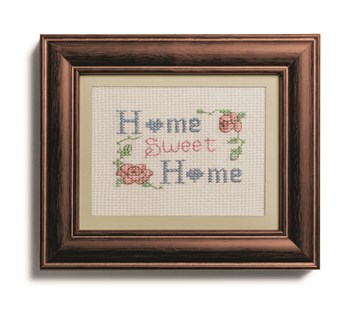
That very sentiment, penned by our 16th president, is just as relevant today as it was when written in the 1850s. Lincoln, like many experts in the field of law, would likely favor and encourage a different option – alternative dispute resolution (ADR) –as the means to settle differences. And with many of the more typical conflicts that plague condominium residents and board members, it’s well worth heeding Lincoln’s wise words and forgo the mad dash to the courthouse.
The two main forms of ADR most commonly used are mediation and arbitration. While both approaches keep involved parties out of the courtroom, they offer vastly different styles of resolution.
Nationally, the trend toward requiring mediation or arbitration as an alternative to litigation is growing, says Boston-based Eric Van Loon, an attorney and accomplished mediator with JAMS, a national dispute resolution company. “The practicalities and expense move more people toward mediation and arbitration. Litigation comes with very high costs and a huge time frame – oftenit takes years just to get a court date.”
And when it comes to condominium associations going to bat in the courtroom, payment for the legal fees comes from the association’s dues, leaving lessfor what that money was originally intended. “It’s in an association’s best interest to try mediation first,” says Van Loon.
A Voluntary Process
Mediation is the voluntary process in which those in disagreement come together, and with the aid of a neutral party, or mediator, work toward finding a solution that all can agree with. The hired mediator makes no judgments or decisions; the goal instead is to guide those involved toward a resolution that they have negotiated and agreed upon. Typically, once a settlement has been reached, a written agreement is drafted and signed, making it binding, though not enforceable by law. If attempts at mediation fail, or the conflict reignitesin the future, the aggrieved still have the choice to move on to arbitration or formal court proceedings.
Like mediation, arbitration employs a neutral third party to hear the grievances of the disputing parties, though that is where the similarities end. As in a traditional court hearing, the arbitrator is presented with briefs, testimony, and evidence, and uses these to render a final and binding decision. With arbitration, the parties involved cannot seek an appeal, nor can they decide to take the issue on to a public court trial. Thedecision is final, which means that at least half of the group may walk away unhappy, with their original problems still in tow.
In choosing which road to take, there are several things to consider. “Mediation,” says Van Loon, “works to take the edge off the dispute and find common ground. Especially if there is going to be an ongoing relationship between the parties – they’re neighbors, for example – then mediation often offers the best way to find a viable, long-term solution that all parties can live with. Arbitration, on the other hand, is basically war: you’ve got one party against another
Ripe for Conflict
The very nature of the condominium lifestyle – close neighbors, the sharing of common property and grounds – can make conditions ripe for conflict. Whether disputes arise between residents or between members of the board and residents, mediation can be a very valuable tool. A good number of the flare-ups stem from lifestyle issues such as noise or pet complaints, disagreements over the use of shared space, or violations of association rules. Troublesbetween the board and association members most often involve a lack of information or miscommunication about association rules or decisions.
Once it is determined that the property manager or the board cannot resolve the dispute, and the parties agree to try mediation, a third-party mediator is chosen. Mediators come from many different backgrounds. Depending on the nature of the dispute, the mediatormay be a lawyer, a retired judge, or a professional in a field related to the topic of disagreement, such as contractors, architects, or engineers. “Ideally,” says Van Loon, “the chosen mediator has expertise in both the subject matter and the process of mediation. Personality is also a big factor. You have to work well with people.” If the parties involved are using lawyers for counsel (not a necessity in mediation as it would be with litigation), it helps if the mediator is also an attorney.
The process of mediation lends itself to the high level of emotion that often accompanies these types of disputes. “Things can get very personal,” says Patricia Nelson, an attorney specializing in real estate based in Lexington, Massachusetts. “People often get very upset, and mediation allows them to speak out. Sometimes people just really want a chance to be heard, to get thingsoff their chest. A good mediator will make people feel that their concerns are legitimate while also leading them toward compromise.”
“Mediation,” says Lester Wolff, president and CEO of the National Center for Dispute Settlement, headquartered in Michigan, “is a lot like a chess game, with an opening phase, a middle phase and a closing phase.” Typically, mediation begins with a meeting of all the parties so that the issues can be put forth. “There’s usually a lot of posturing going on, with each side flexing their muscles. It’s often a very emotional phase. The mediator’s role is to be a sensitive listener, to startlooking for areas where common ground may be found.”
In the middle phase, the parties will usually meet privately with the mediator, in what is called a caucus. (Occasionally, the parties never actuallymeet face to face but only with the mediator.) It’s here that the mediator will begin to develop parameters to settle. “People begin to get a lot more serious about what they really need,” Wolff says. “The communication is usually more rational; there is more analysis, and various proposals for solution can be discussed. The real work is done during the caucuses.”
If it looks as though the dueling parties are no closer to compromise after repeated attempts, a good mediator will also act as “an agent of reality,” explains Wolff. “The mediator can show the parties what taking the issue to court might be like, or give them a sense of how their dispute may turn out by giving real-life examples, or showing a cost-benefit analysis. They might realize that it would be like going through major surgery just to fix a sprained ankle.”
The closing phase seeks to confirm and put into writing the specific agreements made between the parties. A successful mediation results in a signed settlement that is a legally-binding written contract.
80 to 90 Percent of Disputes Are Resolved
Mediation has a very high success rate for solving disputes – usually between 80 to 90 percent, according to Wolff and Van Loon – and the degree of compliance is greater with mediation than it is with arbitration and litigation. One of the main reasons, explains Van Loon, stems from the fact that the parties involved have so much say in the outcome rather than having it imposed on them by an arbitrator or judge. “Guided by a skilled mediator, the parties have looked at all the angles and all the implications and have come to a voluntary agreement. Most often, after so much participation, they tend to honor the agreement they’ve made.”
Wolff agrees. “Mediation at its best is a collaborative, problem solving process. When individuals can communicate their needs and interests to get to the root cause of a problem, the solution will likely be far more comprehensive and satisfying than a decision in a court case. No judge or jury could ever come up with a decision that benefited everyone involved.”
“Everything said during the mediation process is kept confidential,” says Nelson, an important factor in encouraging participants to reach a comprehensive conclusion. “People tend to be more open with their needs and concerns when they know it can’t be used against them later.” Should the mediation proceedings not work out and the parties decide to advance to arbitration or litigation, any volatile or private issues previously expressed “cannot be brought back to haunt them.”
Arbitration (or even litigation) is generally more suited to issues that aresignificantly more complex or involve outside parties. The process is more formal than that of mediation, with a private judge and many of the same procedures that are followed in a public courtroom. Though there are similarities between litigation and arbitration, the latter process is more streamlined, faster, and usually costs less than the former.
Bypassing mediation in favor of arbitration is also a good bet when the issues at hand need straight clarification rather than a long-term solution. “Sometimes people just need a definitive answer or a decision,” says Nelson. “In a case where something is unclear – the wording and language of some condominium document is ambiguous, for example –it makes sense to move directly to arbitration.”
The benefits of choosing ADR over litigation are many, especially when mediation can be used to successfully settle disputes. For smaller condominium associations, the costs of public litigation are often prohibitive. ADR, however, is cost-effective for even the smallest associations. For example, the New England Chapter of the Community Associations Institute (CAI-NE) offers Condominium Dispute Resolution for a $500 administrative fee, $600 for non-members. In addition, many disputes can be resolved in a matter of days with mediation, in contrast to court battles that may take weeks or months.
Perhaps most importantly, successful mediation works to keep the peace for the long term – ideal for maintaining good relationships among neighbors and board members alike. Abe Lincolnwould be proud.






Leave a Comment